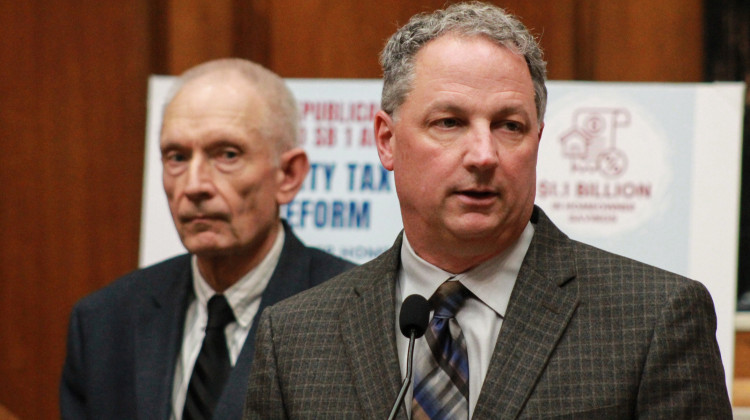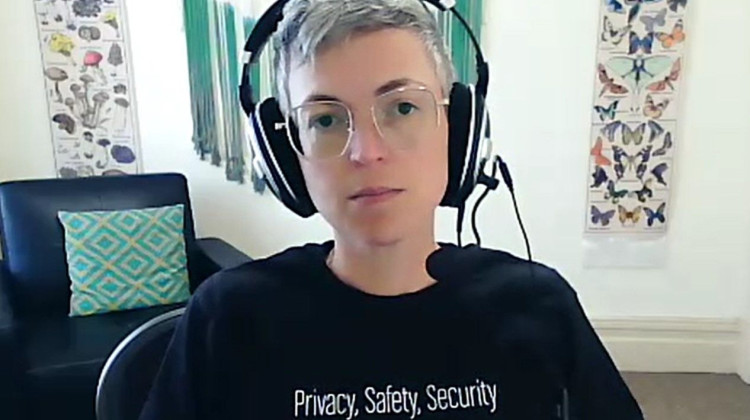
A career and technical education high school student in Elkhart grinds a piece of metal before welding it.
FILE PHOTO: Justin Hicks/IPB NewsState officials halted work on the Marble Hill Nuclear Power Plant, an expensive construction project in southern Indiana, in 1984. Multiple reports cite failures in construction, including shoddy welding, as partly responsible for that project's abandonment. At the time, the state had sunk at least $2.5 billion into it.
A new law, HEA 1211, aims to help avoid welding issues on public projects in the future. The law's author, Rep. Michael Karickhoff (R-Kokomo), pointed to the Marble Hill incident during a legislative hearing earlier this year to exemplify the need for certified welders on certain projects.
"I had several people go, 'if we had had certified welders or Marble Hill, we wouldn't have had some of the problems that we have with that particular construction project years ago,'” Karickhoff said. “House Bill 1211 is good public policy that aims to strengthen Indiana's infrastructure, ensuring the best use of taxpayer dollars and the highest degree of public safety.”
The new law requires welders of “structural steel” on public works projects to be certified by the American Welding Society, at least at the “base level,” known as the D1.1 certification. The requirement does not extend to welding done in the private sector.
Join the conversation and sign up for the Indiana Two-Way. Text "Indiana" to 73224. Your comments and questions in response to our weekly text help us find the answers you need on statewide issues.
State agencies can set their own requirements for welders to work on their projects. The Indiana Department of Transportation often requires the D1.5 certification on its projects, which is a “step above” the D1.1, an INDOT official from told lawmakers during testimony earlier this year.
The D1.1 certification can cost around $3,000 for both classes and the exam. Kokomo Area Career Center welding instructor Brian Mikesell testified that it often takes about 60 hours of instruction before students are ready to take the exam, which involves a “visual” examination of an example of the students’ welding and “destructive tests” to check the strength of their weld.
Mikesell said it is “a difficult test to take and pass.” But he doesn’t see it as a barrier to employment, especially given that 90 percent of his students are able to pass it.
“It actually aids to the employment. If you have a D1.1 certified welder, and you're just welding non-load bearing material, you're going to have a far superior welder,” he said.
Many employers, Mikesell said, are looking for that skill level in their welders already. In one day this year, he received more than 100 job offers to pass on to his students from the same company.
“[Employers] come to the centers that are D1.1 certifiers,” Mikesell said. “There are welding shops that don't require any certifications at all. If you're just pinning a toolbox together and welding seams, there's no certification … We open up the door to the bottom man just a little bit more because the [certified welders] will go on to other jobs that require certification.”
HEA 1211 takes effect July 1.
Adam is our labor and employment reporter. Contact him at arayes@wvpe.org or follow him on Twitter at @arayesIPB.
9(MDAyMzk1MzA4MDE2MjY3OTY1MjM5ZDJjYQ000))
 DONATE
DONATE






 Support WFYI. We can't do it without you.
Support WFYI. We can't do it without you.